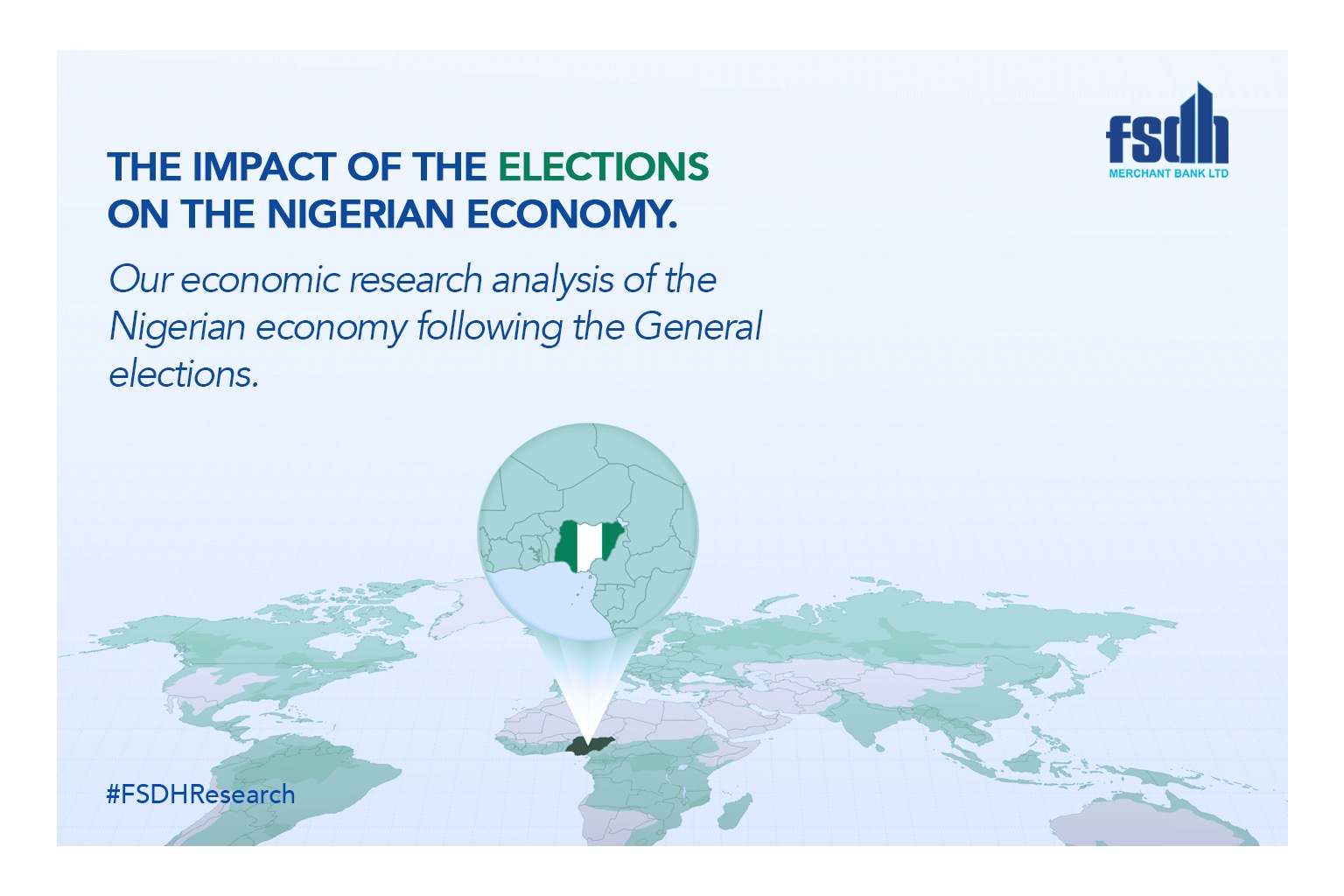In the first quarter of 2023, Nigeria’s macroeconomic environment was characterized by a cash crunch that was largely attributed to the transition to a cashless economy and the forthcoming election. The scarcity of cash led to a decline in economic activity as businesses struggled to access credit and pay their bills. Economic activity was subdued, with businesses and investors adopting a wait-and-see approach due to the uncertainties surrounding the election outcome.
Nigeria started 2023 with an expectation of lower GDP growth relative to 2022. Real GDP growth was slow, and inflation remained elevated due to supply chain disruptions and a low base effect. Before the presidential election in February 2023, four notable occurrences were prevalent in the Nigerian economy.
- The Naira Redesign Policy
On October 26, 2022, the Central Bank of Nigeria (CBN) announced that the N200, N500 and N1,000 notes will be redesigned and introduced into the economy from December 15, 2022, while commercial banks were directed to return existing denominations to the CBN.
The policy was driven with the goal to deepen the drive towards a cashless economy, make monetary policy more efficacious and minimize incidents of terrorism and kidnapping.
Although, the policy was for a good cause, it had adverse effects on the different spheres of the economy. The policy created undue pressure on banks and citizens due to the short conversion window. This short notice heightened uncertainty in the economy. It also created immense pressure on banks’ IT infrastructure, mobile money agents and payment platforms, leading to increased downtime and disruptions.
The withdrawal of the select old Naira notes from circulation and the limited supply of the new notes led to a cash crunch, where majority of citizens and businesses do not have adequate access to the legal tender. Worst still, the confusion on whether the old Naira notes remained as legal tender following the pronouncement of the Supreme Court created further complications. Overall, the cash crunch had severe impacts on households, businesses, and even on the authority of the CBN itself.
However, despite the many negative impacts of the cash crunch, there was a significant increase in electronic transactions in January and February 2023. Records show that volume of online fund transfers increased from 349 million and 356 million in January and February 2022 respectively, to 542 million and 788 million in the respective months in 2023.
- High inflation with no sign of abating
There was a month-on-month inflation rate at 1.71%. Miscellaneous goods and services, education, health, and transport recorded the highest increases in prices in February 2023. High inflation reduced purchasing power of the average Nigerian. The key drivers of inflation in the period were exchange rate depreciation, higher fuel costs, supply chain constraints, and low agricultural productivity. Other factors such as high government spending, insecurity, inadequate infrastructure, poor power supply and charges from non-state actors are significant in driving inflation.
- Fuel Scarcity
An opaque subsidy regime and high import costs resulted in fuel scarcity across the country. In the fourth quarter of 2022 up to the first quarter of 2023, Nigerians experienced scarcity of petrol and diesel, leading to long queues at petrol stations. Fuel shortages emerged as a result of several factors including high import costs, FX scarcity, under-investment in the downstream sector, an opaque subsidy regime and an inefficient distribution network, where the Nigerian National Petroleum Company Limited serves as the sole petrol importer.
4. Exchange rate volatility intensifies, slightly motivated by the scarcity of cash
The Naira redesign policy and associated cash scarcity aided depreciation of the Naira as Nigerians looked for a safe haven for their funds.
The Elections and Its Aftermath
The general elections in Nigeria have been concluded. Although grievances were raised by some voters and members of the opposition parties, there has not been any major post-election violence. This is the first stage in the democratic transition process which Nigeria has, at least, scaled through for now. This reinforces investor confidence in the Nigerian political system and reduce the risk of political instability that can negatively affect the economy.
Additionally, upon assumption to office of the new administration, there is expectation of the introduction and implementation of policies that support economic growth and development for Nigeria’s economy. This could include measures to promote private sector investment, encourage job creation, and improve the business climate. Ultimately, the economic outcome of the 2023 Nigerian elections will depend on a variety of factors, including the policies of the new government and external factors such as global economic conditions and commodity prices.
In all, the macroeconomic outlook of Nigeria in Q1 2023 saw different twists and turns. However, the swearing in of a new government and the subsequent policy direction that will be introduced by the administration will be crucial in determining the country’s macroeconomic outlook in the near to medium term.
To know more about how Nigeria’s financial market reacted to the outcomes of the elections, you can see here for a full report.


